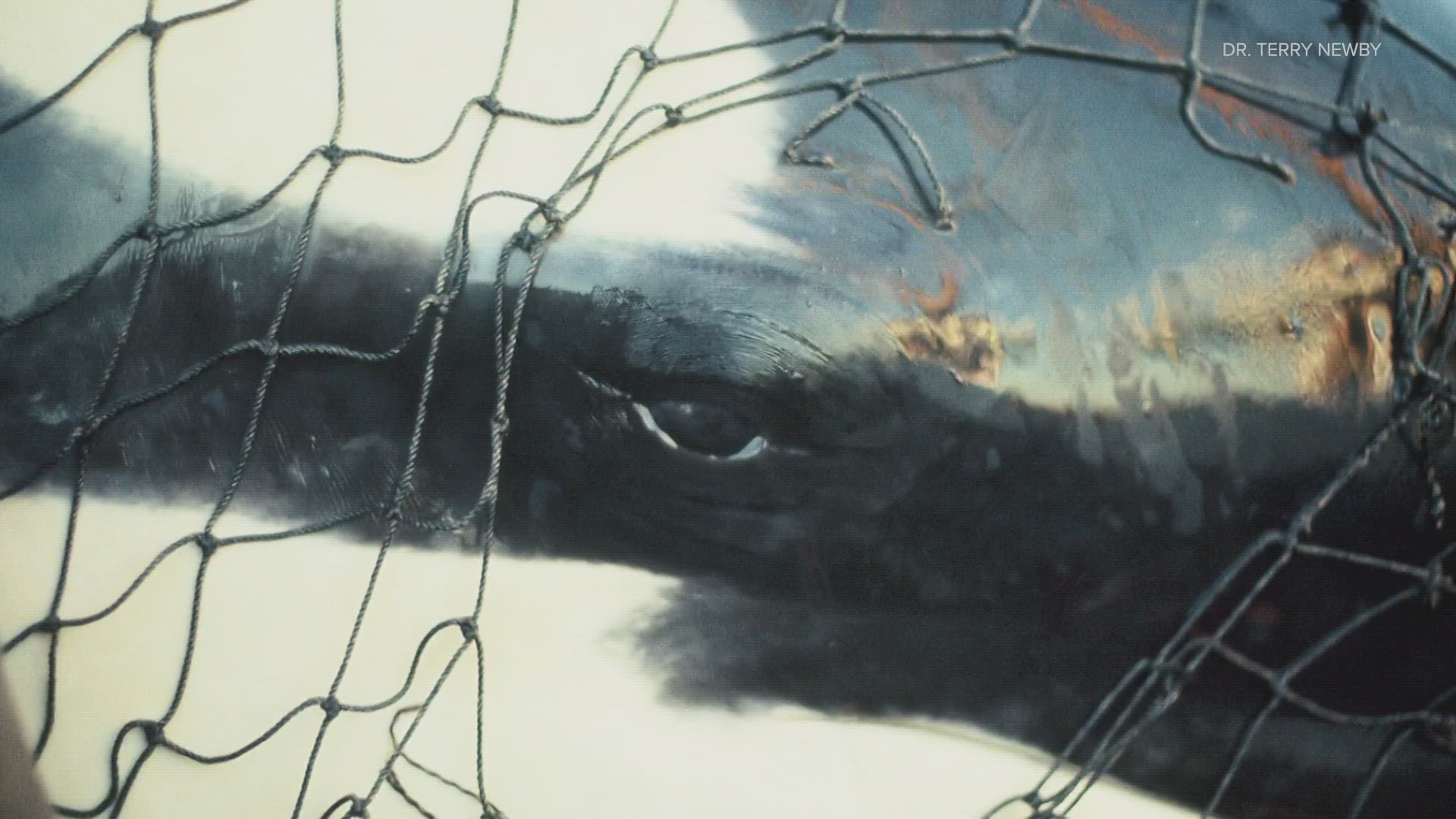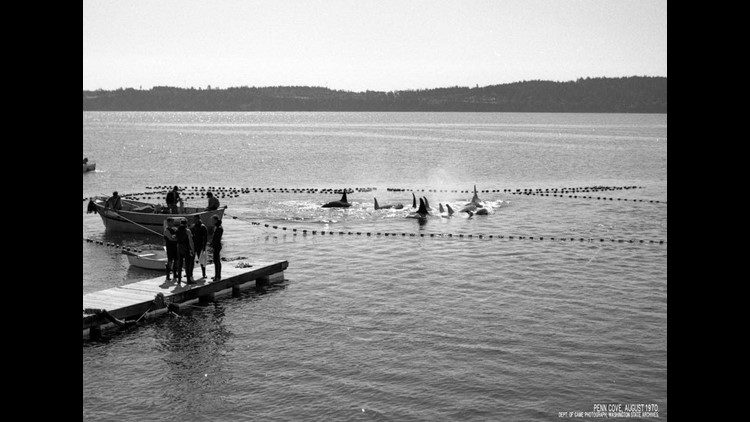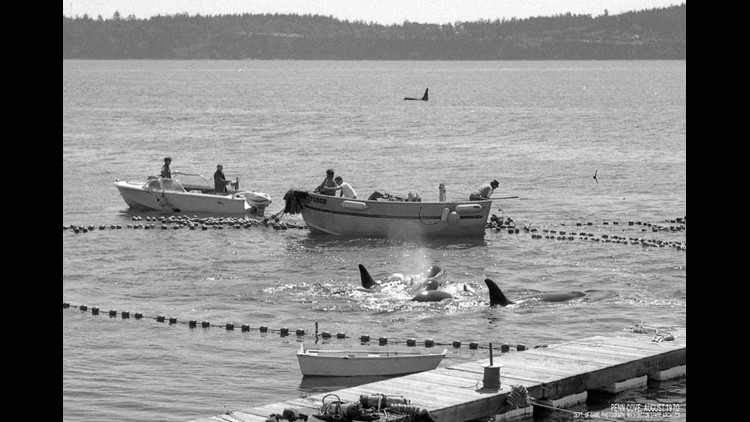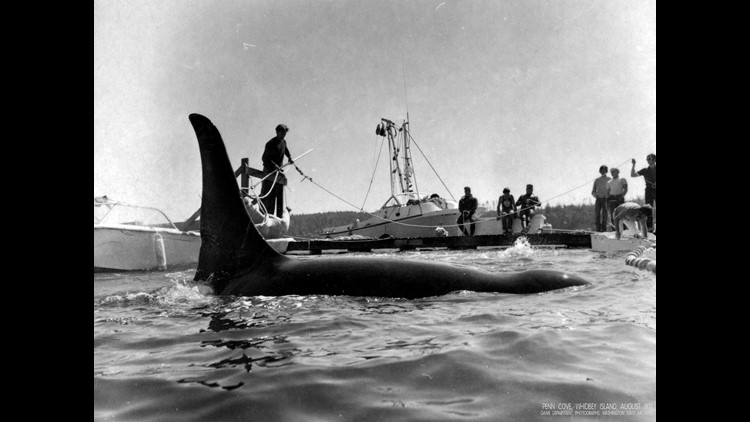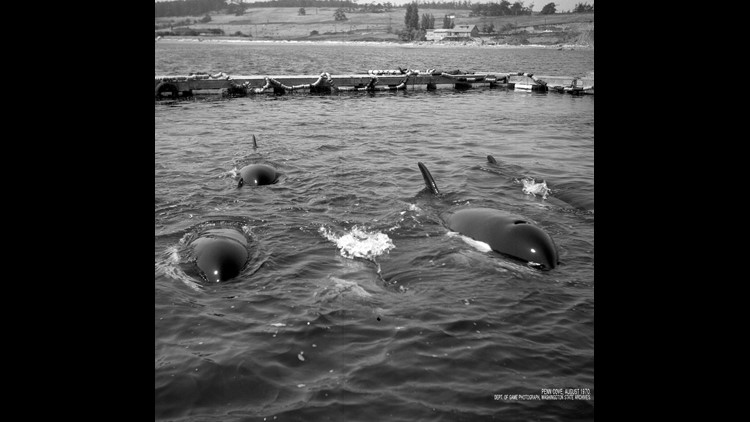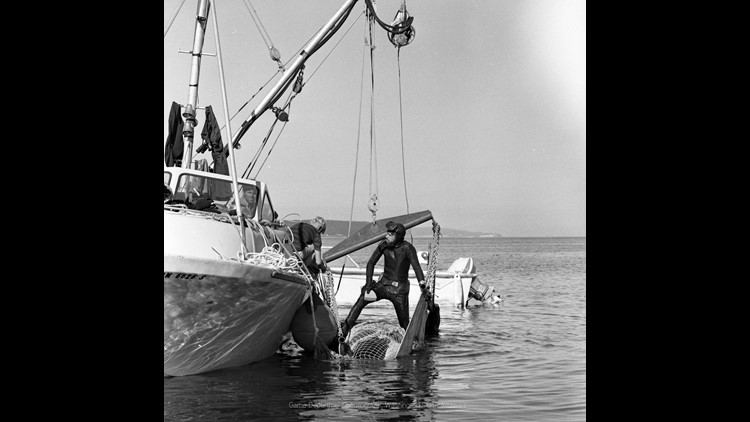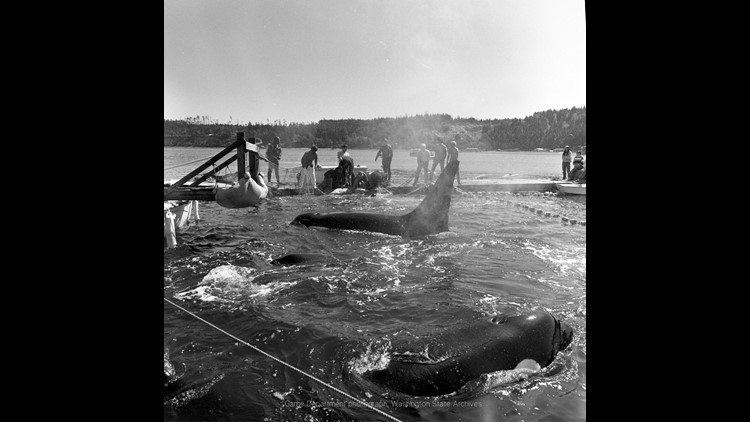MIAMI — Fifty-three years and 10 days after Tokitae was captured from Puget Sound, Southern Resident orca Tokitae died in captivity at the Miami Seaquarium.
She was the last surviving orca of the killer whales that were captured from Puget Sound and sold into captivity. Here is a look back at her life, from violent capture and sale to death.
1970
KING 5 was there when Tokitae was violently taken from her pod in August 1970 near Whidbey Island's Penn Cove.
People who were trapping the whales to sell to aquariums were using planes to spot them in the ocean and explosives to separate the adults from the young.
Several orcas died during the roundups.
Tokitae was sold to the Miami Seaquarium for about $20,000. She was believed to be just four years old.
The Lhaq'temish people, also known as the Lummi Nation, have been fighting for Tokitae's return since the day she was captured. They also call her Sk'alich'elh-tenaut, a name that means "home."
The below gallery depicts whale-catching operations in Washington State in the 1970s:
Photos of orca-capturing operations in Washington State
Tokitae arrived in Miami in late September of 1970. She was said to be "depressed" upon her arrival, refusing to eat.
When Tokitae arrived at the Seaquarium she was put into a tank with Hugo, another orca who was captured from the Puget Sound a year and a half before she was. They lived in what was called a "whale bowl," an 80-by-35-foot tank.
Hugo died in 1980 from a brain aneurysm after repeatedly banging his head against the wall of their shared tank.
Since then, Tokitae has either lived alone or with dolphins.
Over the next 50-plus years, Tokitae performed for crowds of hundreds under the name Lolita.
2018
Activist groups fighting to free a local Southern Resident orca from the Miami Seaquarium lose their latest court battle.
A federal appeals court rejected a petition to reopen a lawsuit over the treatment of Lolita - also known as "Tokitae."
The court's decision states that while the orca's age of 51 makes the case "unique." However, there is no threat of serious harm that would trigger a federal animal welfare law violation, the AP reported.
2020
Members of the Lummi Nation went to Miami to mark 50 years since Tokitae arrived at the Seaquarium.
2021
In August 2021, The Dolphin Company purchased the Seaquarium, and as a condition of the sale, the U.S. Department of Agriculture told the company they had to retire Tokitae.
A month later, the USDA then released a report showing that the conditions Tokitae was living in were impacting her health.
She was being fed "poor quality" rotting food, the water in her tank was dirty and her trainers "disregarded veterinary instructions," making her perform despite her injuries.
2022
The new owners of the Miami Seaquarium announced they would no longer stage shows with Tokitae under an agreement with federal regulators.
MS Leisure, a subsidiary of The Dolphin Company, said that Tokitae and a companion white-sided dolphin Lii will no longer be exhibited under its new license with the U.S. Department of Agriculture.
Since Tokitae's retirement, her care was taken over by a team of independent veterinarians and her health began to improve. The new owner of the Miami Seaquarium told a Lummi Elder that he would support Tokitae's relocation if certain conditions were met.
2023
In March 2023, the day that so many had been waiting for arrived: the aquarium announced that it was on board with plans to send the orca back to the Salish Sea.
The owners of the Miami Seaquarium announced a "formal and binding agreement" with Friends of Lolita to begin the process of returning the orca to Puget Sound. The joint effort is "working toward and hope the relocation will be possible in the next 18 to 24 months."
In early May, a joint report between the Miami Seaquarium and Friends of Lolita announced that Tokitae is in "good condition," and that plans to relocate her are moving forward.
The plan to move Tokitae needed to be approved by federal authorities before concrete steps could be taken.
Before any of those steps could occur, however, Tokitae died. According to the Miami Seaquarium, she began showing signs of discomfort in mid-August. She died the afternoon of Aug. 18 from what her care team believes was a renal condition.

